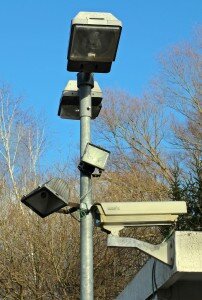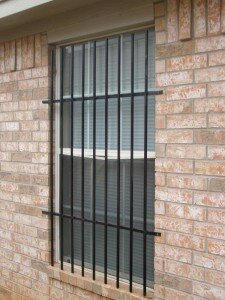Condo Owners Want Security: Are Associations Required to Provide It?
by Mark Einhorn
When a gunman opened fire on patrons at an Orlando nightclub a few weeks ago, killing and injuring more than 100, commentators grappled initially with the horror of the act. But they also speculated about the obligation of the nightclub owner to provide better security. Community association boards confront the same question: What obligation do they have to protect community residents? The answer, once fairly straightforward, has become a bit murkier with the passage of time, the explosion of violence, and the evolution of court decisions.A negligent security claim has three components – legal benchmarks plaintiffs must meet to prevail in court:
- Foreseeability – was the injury or loss something the association reasonably could have anticipated?
- A duty of care – did the association have an obligation to prevent the harm?
- A breach – did the association fail to meet its obligations?
The courts in Massachusetts and other jurisdictions have readily assigned liability where associations have failed to take reasonable steps to prevent foreseeable injuries resulting from the physical condition of the property ― a slip-and-fall case, where the association failed to sand an icy parking lot is an obvious example. But the courts have differed on the extent to which condo associations should be liable for the criminal acts of third parties. A Neon Warning LightThe judicial equivalent of a neon warning light for condos came in a 1986 California case (Frances T. v. Village Green Homeowners Association) that still makes association attorneys nervous. Concerned about a rash of burglaries in her condo community, the plaintiff in this case asked the board to install better lighting near her unit. When the board failed to act, the frustrated owner installed new lighting herself, which the board ordered her to remove because she had failed to obtain permission for it. The owner complied, disconnecting her light and in the process, disabling the other lighting to which it was linked. She was raped later that night and sued the association for negligence. An appeals court found the association liable for violating the standard of due care they owed this owner.Massachusetts courts rejected a similar negligence claim in a 1991 case (Hawkins et. al. v Jamaicaway Place Condominiums), in which an owner who was raped in her unit sued the board for refusing to install the security bars she had requested on her ground floor windows. The board said the bars represented an improvement, which the requisite 75 percent of owners had refused to approve. The court said the association had no liability, because the owner could have installed the bars herself. The board didn’t bar the installation, the court noted; it simply refused to make it an association expense. Attorneys unsettled by the Village Green decision were somewhat reassured by this one.A California appeals court also set a relatively high liability bar for condominiums in a 2012 case, Girardi v. San Rafael Homeowners Association, involving a couple whose home was burglarized twice within a period of a year. The owners argued that the association was negligent, because despite its knowledge of the first incident, it had failed to repair broken streetlights, and failed to hire a security guard and take other security precautions that the owners argued would have prevented the theft. But an appeals court ruled that the owners could not identify the burglars and so could not prove that they were not authorized to enter the community; nor could they prove that the lack of security features contributed significantly to the crime. The appeals court also notably did not reject the trial court’s base line conclusion that a community association has no obligation to protect residents from third party criminal acts.Obligations and RisksIn the absence of controlling precedents (and there aren’t any in Massachusetts), it is difficult to predict with any certainty how courts will rule on this key legal question: What obligation do associations have to protect owners from crime in their communities? While the decisions cited here don’t reflect a consistent legal theory we could assume the courts might apply, they do offer some helpful guidance to boards trying to assess their security obligations and the liability risks related to them.
A Neon Warning LightThe judicial equivalent of a neon warning light for condos came in a 1986 California case (Frances T. v. Village Green Homeowners Association) that still makes association attorneys nervous. Concerned about a rash of burglaries in her condo community, the plaintiff in this case asked the board to install better lighting near her unit. When the board failed to act, the frustrated owner installed new lighting herself, which the board ordered her to remove because she had failed to obtain permission for it. The owner complied, disconnecting her light and in the process, disabling the other lighting to which it was linked. She was raped later that night and sued the association for negligence. An appeals court found the association liable for violating the standard of due care they owed this owner.Massachusetts courts rejected a similar negligence claim in a 1991 case (Hawkins et. al. v Jamaicaway Place Condominiums), in which an owner who was raped in her unit sued the board for refusing to install the security bars she had requested on her ground floor windows. The board said the bars represented an improvement, which the requisite 75 percent of owners had refused to approve. The court said the association had no liability, because the owner could have installed the bars herself. The board didn’t bar the installation, the court noted; it simply refused to make it an association expense. Attorneys unsettled by the Village Green decision were somewhat reassured by this one.A California appeals court also set a relatively high liability bar for condominiums in a 2012 case, Girardi v. San Rafael Homeowners Association, involving a couple whose home was burglarized twice within a period of a year. The owners argued that the association was negligent, because despite its knowledge of the first incident, it had failed to repair broken streetlights, and failed to hire a security guard and take other security precautions that the owners argued would have prevented the theft. But an appeals court ruled that the owners could not identify the burglars and so could not prove that they were not authorized to enter the community; nor could they prove that the lack of security features contributed significantly to the crime. The appeals court also notably did not reject the trial court’s base line conclusion that a community association has no obligation to protect residents from third party criminal acts.Obligations and RisksIn the absence of controlling precedents (and there aren’t any in Massachusetts), it is difficult to predict with any certainty how courts will rule on this key legal question: What obligation do associations have to protect owners from crime in their communities? While the decisions cited here don’t reflect a consistent legal theory we could assume the courts might apply, they do offer some helpful guidance to boards trying to assess their security obligations and the liability risks related to them.
- Unless the governing documents include security on the list of association responsibilities, associations have no inherent obligation to protect residents and their guests from the criminal acts of third parties. But associations do have common area maintenance obligations that are security-related – replacing lightbulbs in common areas and making sure common area doors and locks are functioning properly all fall into that category. Boards that fail to correct a problem that comes under their maintenance and repair obligations after receiving notice of it will almost certainly be sued if an owner suffers a loss or injury that is related even tangentially to that maintenance lapse. Whenever tragedy strikes, it is always possible that a court, sympathetic to a victim, could find a creative way to rule against an association, which is a position no association wants to be in if it can be avoided.

- Boards may not be responsible for ensuring the safety of owners, but they should not ignore legitimate security concerns raised by owners or known to the board. Likewise, boards should certainly not prevent owners from taking reasonable security precautions on their own, as long as those measures don’t damage common areas, harm or inconvenience other residents.
- While boards have no general obligation to hire security guards, install surveillance cameras and motion detectors, or implement any other specific security measures without firm reasons to do so, they do have an obligation to ensure that any equipment they do install is operating properly. The owner robbed at knifepoint in the parking lot will have a reasonable claim if it turns out that the surveillance camera located there has been broken for six months and the board has ignored multiple requests to repair it, even if the camera is not monitored and is unlikely to have prevented the crime from occurring in the first place.
- If the board eliminates a security feature it has been providing – for example, if it fires a security guard the association had been employing – the board should document the reason for that decision and make sure owners are aware of and understand it. Boards face greater liability risks by eliminating an existing security service than by never providing the service in the first place.
- Boards that do too much in the security arena may also incur outsized liability risks. The Treyvon Martin case — where the head of a community association’s neighborhood watch group shot and killed an unarmed teenager ─ provides a well-known example and a cautionary note for condos. The community association in this case faced a huge negligence claim because it publicly sponsored the watch group, but did not adequately supervise its volunteers. If the owners in your community want security services, the association should hire a professional contractor – with the appropriate training and insurance – to provide them which will help manage the risk.
- Boards should also watch the language they use. Don’t say or do anything that suggests or might lead owners to assume the association is protecting them from harm. In a recent California case (Lastasha McDonald vs. First Coast Association Management, LLC), a visitor was killed by burglars while checking on a relative’s home in a gated community that advertised itself as “secure.” A jury decided that the association’s failure to repair a broken access gate breached its promise to provide security, and awarded the victim’s family $2.66 million in damages as a result – 70 percent of that assessed against the management company and 30 percent against the association. The obvious advice here:
- Don’t describe your community as “secure” or use any other descriptions suggesting the association ensures owners’ safety. Associations walk a fine line – you want residents to feel secure in the community, but you don’t want them to rely on the association to ensure their safety. Neither the Board nor the property manager is a substitute for the police. If you maintain a security camera, call it a surveillance or monitoring system, and make it clear to owners that the device is not monitored and that it monitors and records crimes, but doesn’t prevent them.
- Remind owners periodically, in newsletters, on Web pages and in other communications, that they should take reasonable steps to protect themselves, and advise them to call the police if they feel threatened or see something suspicious.
- Disavow liability as much as you reasonably can. We advise associations to adopt a ‘no security amendment’ to their condo bylaws, stating that notwithstanding any safety measures the association may have adopted, it is not guaranteeing the security of owners, is not responsible for preventing crime in the community, and is not responsible for any criminal acts that occur on association property.

- But, at the same time, don’t ignore the obvious. Installing stronger doors or better locks, adding lighting, trimming bushes and shrubs so they don’t create natural hiding places or obscure windows and doors are all reasonable, low-cost steps associations can and should take to improve security without acknowledging responsibility for ensuring it. Conducting background checks on association employees and controlling keys in their possession are also common sense measures that can reduce liability risks.
- Don’t focus on liability alone. You don’t want the association to be sued or incur a huge damage claim, but you also don’t want owners to suffer harm the association might be able to prevent. You have to balance the risks. Having a defibrillator in the lobby or near the swimming pool unquestionably creates potential liability, but the possibility that it might save a life should outweigh the liability concern. In weighing security concerns and liability risks, it may be helpful to remember: It is often the actions we don’t take that we regret the most.

